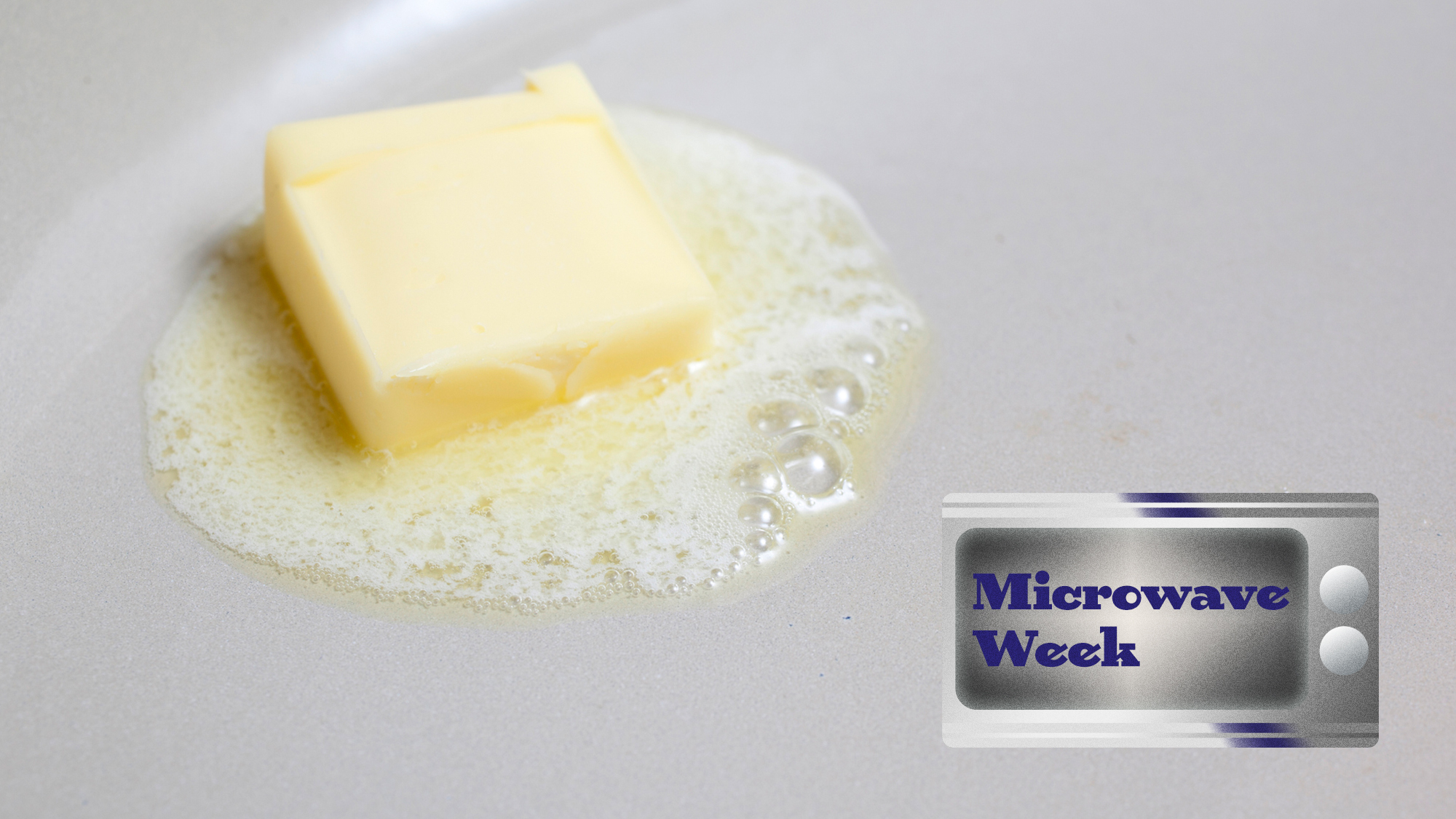Why Does Butter Explode In The Microwave?
And how to avoid coating your entire microwave with the greasy aftermath.
You should never take your eye off butter that you're melting in the microwave, because the moment you decide to check your phone or turn to watch your dog do something cute, it will explode. How does the butter know when you've broken eye contact? I don't know. What I do know is why butter likes violently bursting into a hot, greasy mess whenever it's in the microwave for a few seconds too long.
First, a dairy lesson. Butter is not 100% fat; at least 80% of its composition is butterfat, 1-2% is milk solids, and the rest is water. If you'll remember from second-grade science class, oils/fats and water do not mix. But in the case of butter, those two substances are able to peacefully cohabitate as a single mass thanks to the powers of emulsification: the water is broken up into thousands of tiny droplets that are suspended throughout the butterfat, which is solid at room temperature.
When microwaves pass through the butter they cause the water molecules inside to vibrate, heating them up and melting the fat around them. Eventually that water gets so hot it turns to steam and needs to escape from its fatty prison, and then—kaboom!—it goes rocketing straight out of the butter in an explosion that splatters hot fat all over the inside of your microwave. Your butter isn't exploding because it hates you. It's exploding because its water droplets want to be free.
To reduce the chance that your butter will explode in the microwave, always melt it on low power in short increments: 15 seconds for small pieces, 30 seconds for larger amounts. Melting your butter slow and steady will give you more freedom to divert your attention to other important things, like prepping additional ingredients or checking Twitter.
